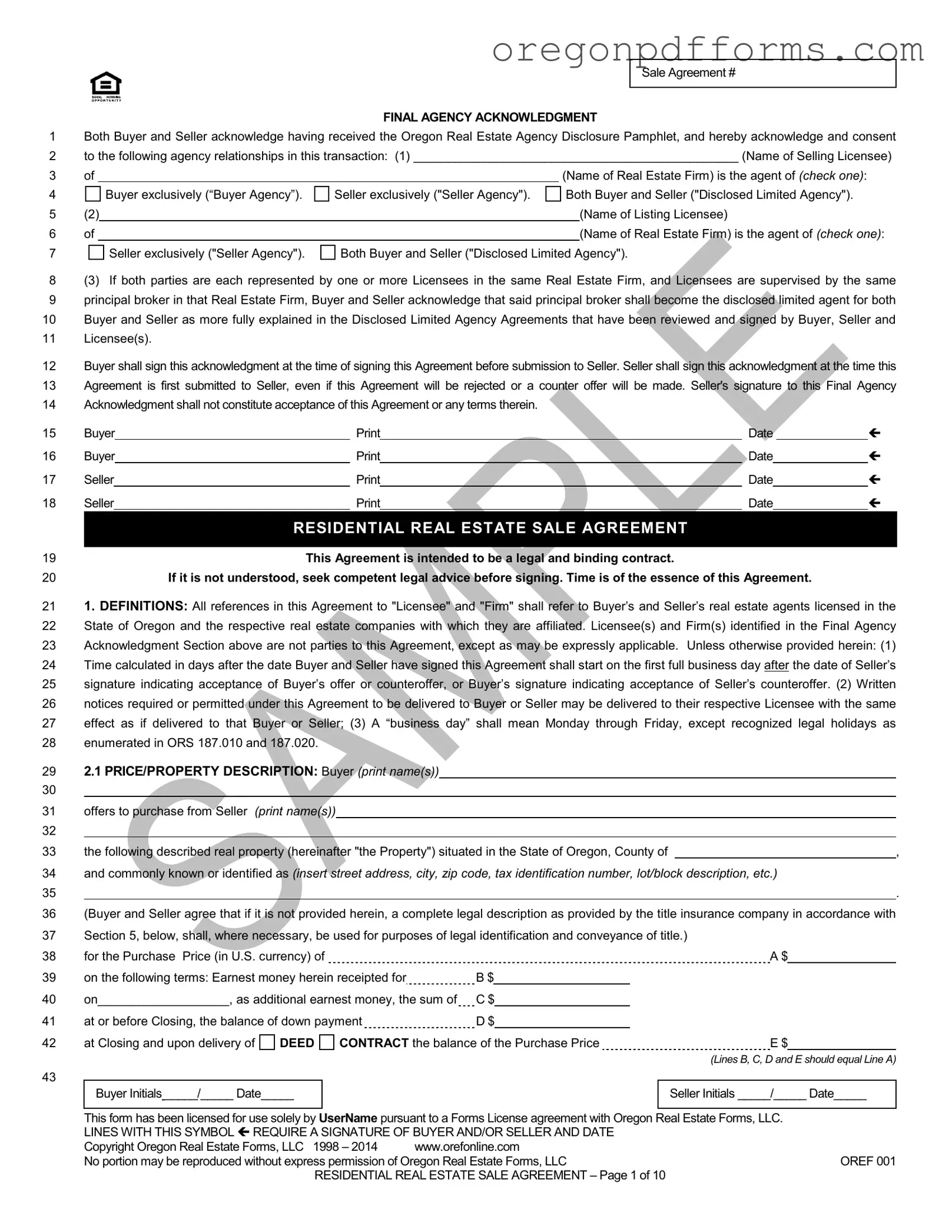Free Oregon Estate Sale Agreement Form
The Oregon Estate Sale Agreement form serves as a crucial document that outlines the terms and conditions for the sale of personal property from an estate. This agreement facilitates the transaction between the estate representative and potential buyers, ensuring clarity and legal protection for both parties. By detailing aspects such as pricing, payment methods, and the responsibilities of each party, the form helps to streamline the estate sale process.
Open My Oregon Estate Sale Agreement

Free Oregon Estate Sale Agreement Form
Open My Oregon Estate Sale Agreement

Open My Oregon Estate Sale Agreement
or
Get PDF
A few steps left to finish this form
Complete Oregon Estate Sale Agreement online with easy edits and saving.